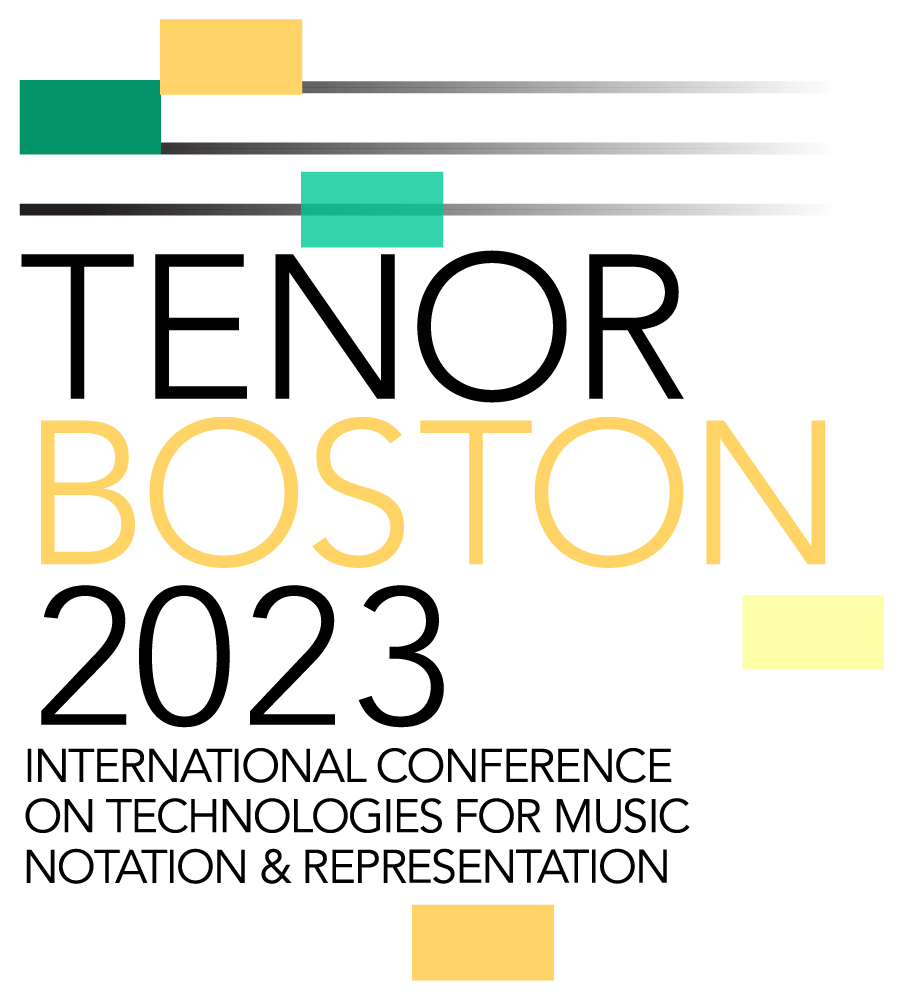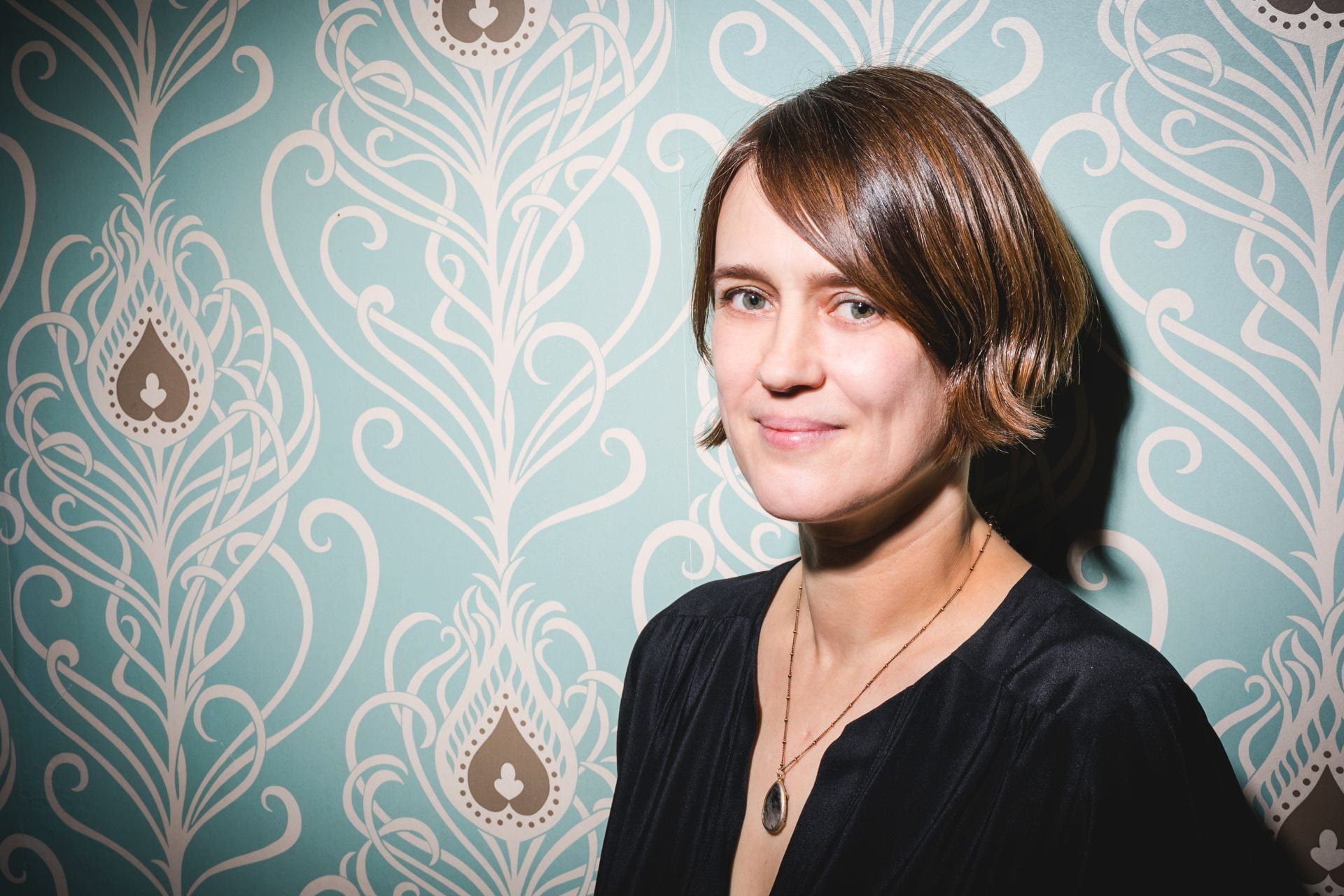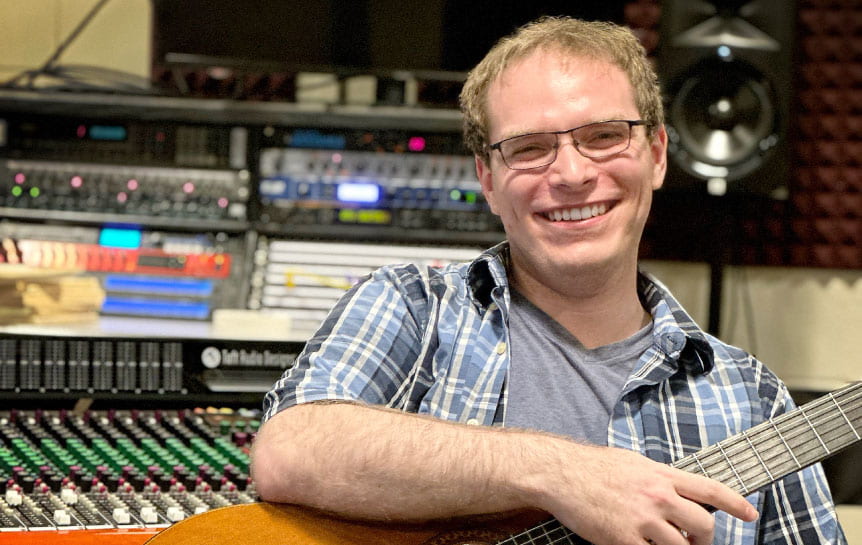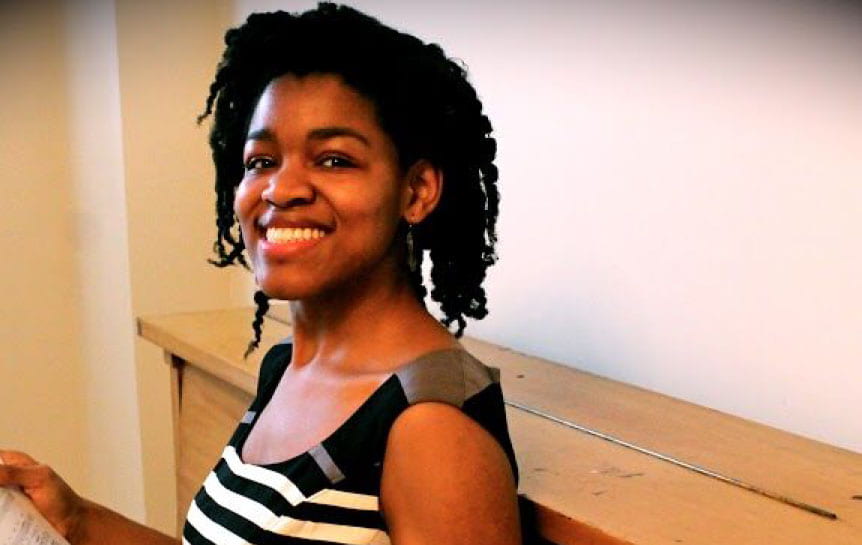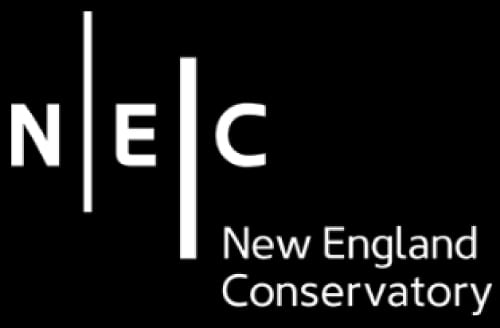TENOR Boston 2023
Performances
May 15-17, 2023
International Conference on Technologies for Music Notation and Representation
Day(s)
:
Hour(s)
:
Minute(s)
:
Second(s)
TENOR BOSTON 2023: Performances
(schedule may be subject to change)
Accepted Sonic Works / Music
Notifications went out directly to composers via e-mail on Monday, February 20, 2023. THANK YOU to all composers who submitted works to TENOR BOSTON 2023. There were many brilliant submissions, many more than we could accommodate in our conference. Special thanks to the SONIC WORKS / MUSIC COMMITTEE for their review. If you have any questions or concerns, please do not hesitate to contact John Mallia <john.mallia@necmusic.edu>.
Feautured composers
Ingrid Laubrock (Photo: Caroline Mardok)
Ingrid Laubrock is an experimental saxophonist and composer, interested in exploring the borders between musical realms and creating multi-layered, dense and often evocative sound worlds. A prolific composer, Laubrock was named a “true visionary” by pianist and The Kennedy Center’s artistic director Jason Moran, and a “fully committed saxophonist and visionary” by The New Yorker. Her composition Vogelfrei was nominated “one of the best 25 Classical tracks of 2018” by The New York Times. Laubrock has performed with Anthony Braxton, Muhal Richard Abrams, Jason Moran, Kris Davis, Nels Cline, Tyshawn Sorey, Mary Halvorson, Myra Melford, Zeena Parkins, Tom Rainey, Tim Berne, Dave Douglas, Wet Ink and many others. Laubrock has composed for ensembles ranging from solo to chamber orchestra. Awards include Fellowship in Jazz Composition by the Arts Foundation, BBC Jazz Prize for Innovation, SWR German Radio Jazz Prize and German Record Critics Quarterly Award. She won best Rising Star Soprano Saxophonist in the ‘Downbeat Annual Critics Poll in 2015 and best Tenor Saxophonist in 2018. Ingrid Laubrock has received composing commissions by The Fromm Music Foundation, BBC Glasgow Symphony Orchestra, Bang on a Can, Yarn/Wire, Grossman Ensemble, The Shifting Foundation, The Robert D. Bielecki Foundation, The Jerwood Foundation, American Composers Orchestra, Tricentric Foundation, SWR New Jazz Meeting, Jazzahead, Wet Ink Ensemble, The Jazz Gallery Commissioning Series, NY State Council of the Arts, Wet Ink, John Zorn’s Stone Commissioning Series and the EOS Orchestra. She is an 2022/23 Artist-in-residence of The Wet Ink Ensemble. She is a recipient of the 2019 Herb Alpert Ragdale Prize in Music Composition, the 2022 Herb Alpert Ucross Prize in Music Composition and the 2021 Berklee Institute of Gender Justice Women Composers Collection Grant. Ingrid Laubrock is part-time faculty at Columbia University and The New School. She holds an MFA in Music Composition from Vermont College of Fine Arts.
TENOR BOSTON 2023 Commissioned Composer
Kitty Xiao (Photo: Alex Clemens)
Kitty Xiao is a composer, electronic musician and pianist from Naarm/Melbourne. Central to her practice is a search for unity in contemporary culture, human psyche, art and machine. Her music involves electro-acoustic and acoustic compositions, and live analog electronics which explore the relationship between sound and physical embodiment. Currently her music is concerned with questions which arise from the body, the experience it carries, and its role in social change. Through exploring the sonic limits of perception and sensation her music seeks to discover interconnectedness between social bodies and imaginaries. She is represented by the Australian Music Centre, and her music has been released through Move Records (Novum, 2017) and Clan Analogue (Coordinate, 2017). She is the recipient of the 2022 APRA Professional Development Award (AU), 2021 Sounds Australia Export Stimulus Program (AU), 2020 Belle S. Gitelman Award (US), 2019 Howard Hanson Large Ensemble Prize (US) and is an Alfred Kitchin scholar (UK). She is currently pursuing a doctoral degree in Music Composition at Columbia University, and is studying with Georg Friedrich Haas and George Lewis. Selected performances of her work include: Ensemble Modern, Switch~ Ensemble, OSSIA New Music, line upon line percussion, Transient Canvas, Sarasota Orchestra, Panoramic Voices, Orlando Contemporary Chamber Orchestra, Frequency Shift, Modular World, Slow Rise Music, Clan Analogue, Australian National Academy of Music, Arts Centre Melbourne. Kitty holds a Master of Music (Composition) from the Eastman School of Music, Master of Music (Performance) from Trinity Laban Conservatoire of Music and Dance, Master of Teaching and Bachelor of Music from the University of Melbourne.
TENOR BOSTON 2023 Commissioned Composer
Xavier Davenport
Xavier Davenport (b. 1995) writes music that is meticulously structured, technologically experimental, humorous, theatrical, often improvisatory, and sometimes entertaining. His compositional interests include incorporating mathematics and physics in compositional procedures, animated and interactive digital scoring, ambisonic audio, and applications of quantum computers in composition. He is the recipient of the Sara Krieg Music Scholarship and Huebner Scholarship, and has worked with several ensembles including the Texas A&M University at Kingsville Saxophone Ensemble, the Vista Trio, Rage Thormbones, Ensemble Dal Niente, the New Hong Kong Philharmonia, the Pyrenean String Quartet, and Ensemble 20+. Davenport holds degrees from Wittenberg University (B. S. Physics, B. A. Music, B. A. Chinese Language & Culture), National Chiao-Tung University (M. S. Electrophysics), and DePaul University (M. M. Composition with distinction). Davenport is currently pursuing a DMA in music composition at the University of Illinois at Urbana-Champaign where he is a graduate assistant working in the Experimental Music Studios under Dr. Eli Fieldsteel.
DigiScore NeoScore Competition, Winner
Lauren McCall
Lauren McCall is a composer and music educator from Atlanta, Georgia. She studied for her master’s degree in music composition at the Vermont College of Fine Arts, and she is a Ph.D. student studying music technology at the Georgia Institute of Technology. Lauren has had compositions performed around North America and Europe. This includes her piece for piano, Shake the Earth, which was performed in Morehead, Kentucky, at Morehead State University’s Contemporary Piano Festival, along with being performed in Eugene, Oregon, at the Oregon Bach Festival Composers’ Symposium. Lauren enjoys collaborating with technologists, musicians, and artists, including Maggie Kane, owner of Streetcat.media and the Fifth House Ensemble. Along with composing, Lauren enjoys playing classical music and jazz on the clarinet and piano, spending time in nature, spending time with family and friends, and traveling.
DigiScore NeoScore Competition, Finalist
PRE-CONFERENCE PERFORMANCE AND SOCIAL EVENT
Sunday, May 14, 2023, 9:30 pm
The Lilypad
1353 Cambridge Street
Cambridge, MA, 02139
Wild West Quartet: Laubrock-Mezzacappa-Levis-Perkis
In town early? Check out TENOR BOSTON 2023 Ensemble in Residence duoB (Lisa Mezzacappa; upright bass; and Jason Levis, drums), DigiScore commissioned composer Ingird Laubrock, saxophone; and Keynote Workshop Presenter Tim Perkis, electronics; as the “Wild West Quartet: Laubrock-Mezzacappa-Levis-Perkis.” LIVE! at The Lilypad.
NOTE: this event is not an official part of TENOR BOSTON 2023, additional fees may apply
CONCERT #1
Monday, May 15, 2023, 5:00 pm
Longy School of Music of Bard College
Edward M. Pickman Concert Hall
27 Garden St, Cambridge, MA 02138
Composer
Rob Hamilton
Composer and researcher Rob Hamilton explores the converging spaces between sound, music and interaction. His creative practice includes mixed and virtual-reality performance works built within fully rendered networked game environments, procedural music engines and mobile musical ecosystems. His research focuses on the cognitive implications of sonified musical gesture and motion and the role of perceived space in the creation and enjoyment of sound and music. Dr. Hamilton received his Ph.D. from Stanford University’s Center for Computer Research in Music and Acoustics (CCRMA) and currently serves as Associate Professor of Music and Media in the Department of Arts at Rensselaer Polytechnic Institute in Troy, NY.
Title
Elegy (Ready, Set, Rapture)
Elegy (Ready, Set, Rapture) is the second work composed for Coretet, a virtual reality musical instrument modeled after traditional bowed stringed instruments including the violin, viola, cello and double bass. Premiered on October 3, 2019 at the Transitions Festival at Stanford University’s Center for Computer Research in Music and Acoustics (CCRMA), Elegy (Ready, Set, Rapture) is a solo multi-channel performance that combines the dynamic presentation of a pre-composed musical chord structure displayed on the neck of the instrument in real-time with improvisation. Coretet is built using the Unreal Engine and is performed using the Oculus Rift head-mounted display and Oculus Touch controllers. All audio in Coretet is procedurally generated, using a physical model of a bowed string from the Synthesis Toolkit (STK), running within Pure Data.
Performers
Rob Hamilton
Roy Guzman
Roy Fernando Guzmán Rodríguez (born June 28, 1987) is an experimental, contemporary, and algorithmic instrumental and electronic music composer, improviser, and poet born in San Juan, Puerto Rico. His music is primarily exploratory and uses algorithmic procedures to create musical structures. The theme of chaos theory, the abstraction of sound scores in instrumental music, Música A Lo Pobre (Poor Music), non-duality, multipolarity and axiomatic music are usually the main axes of his work.
Abstracciones de Jangueo En La Finca de Julio
This work is a piece written with the technique of abstracting soundscores that are composed or recorded for musical interpretation. Although soundscores have many options in the compositional material used as editing sound material for specific moments and the creation of soundscores for each individual, this piece follows a series of pieces called Abstracciones de Puerto Rico for String Quartet where field recordings of places in Puerto Rico are used for musical interpretation. This piece is a field recording superimposed on top of other segments of the same field recording that catches the sounds of a hangout in the country side of Puerto Rico in the area of Utuado in a farm of Julio, a friend of mine. I intentionally brought Puerto Rican musical instruments, guitar and flutes in order to make them sound freely in the hang.
LOADBANG
Cecilia Suhr
Cecilia Suhr is an intermedia artist and researcher, multi-instrumentalist (violin/cello/voice/piano/bamboo flute), multimedia composer, interaction designer, painter, author, and improviser. She has won multiple awards in the field of visual art, music, interactive media, and academic research, including the MacArthur Foundation, Digital Media and Learning Research Grant Award (2012), the Pauline Oliveros Award from the IAWM (2022), Silver Medal Award from the International Cambridge Music Competition (2023), Bronze Medal Winner from the Global Music Awards (2022), Best of Competition Winner in Interactive Media and Emerging Technologies from the BEA, Festival of Media Arts Competition (2023), Saint Michael Achievement Medal from International Juried Fine Arts Competition, (2013).
Eastern Praxis
Eastern Praxis is an interactive live graphic score represented in real-time through symbols, patterns, and free-line notations. The graphic notations are inspired by Korean traditional clothing (national costume) called “Hanbok”’s color and design pattern. The composer will improvise live on the four instruments, cello, a traditional Korean bamboo flute called “Danso,” a Tibetan Singing bowl, and violin while imagining the sound of the East and West. Western instruments such as the cello and violin are played with an Eastern influence, channeling the angst-ridden soul of the East (“한” 恨) while interweaving with the romantic Western musical style. The electro-acoustic performance of live instruments creates myriad sound constellations at the intersection between East and West, modern and ancient. All live instruments are accompanied by fixed media electronics and live interactive processing. *The audio-visual interaction programming received partial technical support from Hans Tammen and Martin Ritter.
Cecilia Suhr, cello, violin, singing bowl, bamboo flute, and electronics
Xavier Davenport
Xavier Davenport (b. 1995) writes music that is meticulously structured, technologically experimental, humorous, theatrical, often improvisatory, and sometimes entertaining. His compositional interests include incorporating mathematics and physics in compositional procedures, animated and interactive digital scoring, ambisonic audio, and applications of quantum computers in composition. He is the recipient of the Sara Krieg Music Scholarship and Huebner Scholarship, and has worked with several ensembles including the Texas A&M University at Kingsville Saxophone Ensemble, the Vista Trio, Rage Thormbones, Ensemble Dal Niente, the New Hong Kong Philharmonia, the Pyrenean String Quartet, and Ensemble 20+. Davenport holds degrees from Wittenberg University (B. S. Physics, B. A. Music, B. A. Chinese Language & Culture), National Chiao-Tung University (M. S. Electrophysics), and DePaul University (M. M. Composition with distinction). Davenport is currently pursuing a DMA in music composition at the University of Illinois at Urbana-Champaign where he is a graduate assistant working in the Experimental Music Studios under Dr. Eli Fieldsteel.
GuitaRPG [NeoScore competition winner]
GuitaRPG is an interactive 2-dimensional score through which the performer may freely navigate. Taking inspiration from Role Playing Games (RPGs), the performer may move through regions of the score at their own pace, each region featuring its own distinct soundscape. Upon encountering a new region, the performer will be presented with a new sound or technique to explore on their instrument, accumulating sounds all the way until the climax at the end of the piece. The more times a performer encounters a particular technique, the more they ‘level-up’ and unlock more variations of that technique. This piece was commissioned by Craig Vear and the Digiscore research project, and created using the neoscore python library, developed principally by Andrew Yoon.
Xavier Davenport, guitar
Motoki Ohkubo
Motoki Ohkubo (b.1988) is a Japanese composer, an audio engineer and a part-time teacher of Nagoya University of the Arts, Aichi Shukutoku University and Soai University. He uses technologies, such as audio engineering, programming, video into musical composition. His works extend a musical form with wide range expression, electroacoustic, algorithmic composition, chamber music, dance music, installation, video. His works won ACSM116 award at Contemporary Computer Music Concert 2010 and Sony special award at Wired Creative Hack Award 2019. and be selected at Musica Viva Festival 2010/2013, International Symposium on Electric Arts (ISEA) 2015, Muestra Internacional de Música Electroacústica (MUSLAB) 2017, ACOUSMATIC FOR THE PEOPLE III RAW, and Sound Performance Platform 2019.
yeah, I see. huh? uh-huh, yup.
Balls are bouncing by physical calculation around in the image projected on the screen. The computer automatically composes music when the ball hits the wall at both ends, and sends the performance instructions to each player’s tablet terminal. The performers follow the instructions they receive in real time. From the audience’s point of view, it appears as if the performers are playing while watching the balls collide. Actually, however, the relationship between the collision of the balls and the performance is not directly connected, but rather there are several processes in between that are designed to make the timing in the end. The rules are simple, with automatic composition sometimes randomly changing the chords used. The music seems to have no development and composition. It’s like a time Sitting on the shore of a lake with friend, looking at the shimmering surface of the water and having an unstructured conversation. This is a protected time where no one can disturb them.
LOADBANG
Sebastian Adams
Sebastian Adams (b. 1991) is an Irish composer and performer. As an undergraduate, he founded Kirkos, an experimental music ensemble which runs Dublin’s only DIY music venues as well as creating major projects of its own. Current projects include Stolen Music (a concert and web-based exploration into the chilling effects of intellectual property law: stolenmusic.org) and Chat Music (real-time conversion of Twitch chat streams into music, in collaboration with Carl Ludwig Hübsch). As a viola player Sebastian is active in improvisation, new music and early music. He recently completed the IRCAM Cursus, and previously studied in Dublin and Vienna.
Circum (after James Joyce)
Circum is an experiment in creating a silent, animated score: the visual element is supposed to be visible both to the performers and the audience and it acts as the entire “text” for the performers. For the musicians, the video inspires them to create sound, generating a feedback loop where their actions are affected both by the video and the sonic choices they have already made. For the audience, however, sound and sight unfold simultaneously. Circum is also my first attempt as an Irish artist to get into the world of James Joyce – probably the most important Irish artist? My transitions, which sit between pieces focused on specific episodes of Ulysses, transverse the entire text (backwards) in several ways, treating Bloomsday like Groundhog Day. The animated score is made of text transformed algorithmically into music notation, both displayed using particle systems.
LOADBANG
CONCERT #2
Monday, May 15, 2023; 8:00 pm
Longy School of Music of Bard College
Edward M. Pickman Concert Hall
27 Garden St, Cambridge, MA 02138
Composer
Jaslyn Robertson
Jaslyn Robertson is a Melbourne-based composer and researcher navigating her composition practice with advocacy for equity in arts from the perspective of her queer identity. Her work spans across the fields of intermedia composition, electronic improvisation and experimentation with notation. Jaslyn’s work has been performed in concerts and festivals across Australia, Canada and Germany. As a PhD candidate at Monash University with Professor Cat Hope, she is researching and composing works around ideas about censorship within composition.
Title
Shadow Aria
Shadow Aria is a piece about silenced voices, and an experiment with lighting and multichannel audio as digital scores. A few years ago, I interviewed Helen Gifford, one of the most interesting Australian composers of the last century. She told me about orchestral pieces and operas she had written over the years that were never performed because of gendered discrimination and the restrictions of her illness. Since then, I have wondered how many pieces have been lost, or never written, due to the lack of opportunities given to marginalised people. In this piece, we hear the accompaniment to a silent soloist.
Performers
LOADBANG
Eugene Markin
Eugene Markin is a composer and sound artist, based in New York City. In recent years he participated in a number of experimental music performances, composed music for multimedia installations and audiovisual projects. His research interests include embodiment in electronic music performance, electroacoustic improvisation, generative arts, and computer-aided composition. His works were presented at multiple events and venues across Europe, including Helsinki Music Hall, Loop Festival and Ars Electronica. With a multimedia installation “New haven” Eugene won 3rd prize at Athens Digital Arts Festival in the category Web Art in 2020.
Survival Kit
Survival Kit is a live electroacoustic piece that explores a connection between textual and musical meaning. It is a revisited take on the choral music in the contemporary computerized era. The piece is performed by a single performer in the live coding manner. The text is entered in the author’s original computer music software Musoem, which triggers sections of pre-recorded music and corresponding processing algorithms. Survival Kit is a poem as much as it is a piece of music. All vocals were performed by Peter Traver, a tenor, using a recording score for individual lines, and edited and programmed into the software by the author.
Eugene Markin, live coding
Iran Sanadzadeh
Iran Sanadzadeh is a performer and composer. Her work explores the possible relationships between movement and sound using her set of terpsichora pressure-sensitive floors. She developed her floors to expand on the legacy of dancer Philippa Cullen and her earlier pioneering work in interactive floors. Her research and collaborative work focuses on interaction design for music, movement and dance. She teaches composition and music technology at Monash University.
502 Days of Self
502 Days of Self is a new work reflecting on performance habits and internal change over long distances. Using machine learning, the personal gestural language of the composer on her novel instrument (the pressure-sensitive floors) is transformed to movement elements of simple shapes in Max. The performers sonify simple parameters in interlocking parts, drawing attention to their own movement and decision-making. This piece draws on the connection between open scores and improvisation with strict limits. This performance folds the piece in itself by adding the pressure-sensitive floors into the instrumentation. The latest iteration of this work plays with changing timbral control, the elasticity of the instrumentation and the relationship between timing and gesture examined from previous iterations.
Cat Hope, flutes; Jaslyn Robertson, electronics; Iran Sanadzadeh, electronics
Shai Cohen
Born in Haifa (1968) working as a teacher, composer, and jazz performer. Cohen composes symphonic music, chamber music, electronic music, and music for solo instruments. Cohen’s music has been performed at events including “ACL Asian Contemporary Music Festival” (2003/Japan, 2009/Korea, 2012/Israel, 2013/Singapore, 2016/Vietnam, 2018/Taiwan), ISCM, contemporary music festival (2006/Moscow Autumn, 2019/Estonia), “Aberdeen Music Prize” (2011), 34th Annual “Bowling Green New Music Festival” (2013), “Israeli Music Festival” (2004, 2012). Cohen is the director of the Music and Technology program at Bar-Ilan University teaching courses in Audio Synthesis, Advanced Studio Recording, Live Electronics Workshop, Arduino Workshop, Max/MSP/jitter Applications, Sound Engineering, Audio Applications, and Music Cognition Workshop. He is also a lecturer at Levinsky College of Education.
Points of Convergence
POINTS OF CONVERGENCE is a music composition proposal for a performance incorporating technology-based notation, featuring Lisa Mezzacappa on upright bass. The concept behind the work refers to the phenomenon in evolutionary computation that stops evolution when every individual in a population is identical. In the case of this piece, it is the point of comprehensibility of musical notation which allows the player to progress in the reading while the performance gestures are revealed through text and shapes that are offered for interpretive performance. These shapes and texts were taken from “Landscape Architecture”, by John Ormsbee Simonds, which incorporates different lines, flows, and geometry to convey different moods. Due to the nature of real-time interpretation, the piece can vary between 10 and 12 minutes.
Lisa Mezzacappa, acoustic bass
Cat Hope
Cat Hope’s compositions engage elements of low frequency sound, drone, noise and improvisation. Her works have been performed at festivals internationally, broadcast on Australian, German, Italian, French and Austrian radio, and recordings of her works are published internationally. She is the director of the Decibel new music ensemble, who developed the Decibel ScorePlayer application. Cat is a represented composer with the Australian Music Centre, and her music is published by Material Press. Her first opera, Speechless, won the Best New Dramatic work in the 2020 Art Music Awards and she is currently a Fellow at the Hamburg Institute of Advanced Study.
Their Lives Are Stripped of Meaning
In 2016, Australian author Richard Flanagan made a statement in a response to the Australian Government’s policy on the treatment of refugees arriving in Australia by boat, which involves detention. “Their lives are stripped of meaning.” In this piece, the vocalist sings these words, but they become incomprehensible as they are separated out over the 8 minutes of the piece; a direct reference to the indeterminate length of detention that Australia enforces upon refugees. Time passes, we forget and our ability to understand becomes difficult. In addition, the electronic part is created by sampling the instruments at certain moments in the piece, and strips away the timbral characteristics of the work, another metaphor for the consequences of this treatment of our fellow human beings. It was commissioned by Callum G’Froerer, and the MaxPatch was created by Stuart James. The score is performed in the Decibel ScorePlayer.
LOADBANG
Ryan Ross Smith
Ryan Ross Smith is a composer, performer and educator based in New York. Smith has performed throughout the US, Europe and UK, including performances at MoMA and PS1 [NYC] and Le Centre Pompidou [Paris, FR], has had his music performed throughout North America, Iceland, Denmark, Australia and the UK, has presented his work and research at conferences including NIME, ISEA, ICLI, ICLC, SMF, ACMC and TENOR, and has lectured at various colleges and universities. Smith is known for his work with Animated Notation, and his Ph.D. research website is archived at animatednotation.com. Current & recent projects include Duets [a series of remotely-produced duets with musical friends from around the globe], Lines and Patterns [musique concrete disguised as ambient music], and Green Dome [with Zeena Parkins and Ryan Sawyer]. Smith is currently an Assistant Professor of Music at the State University of New York at Broome.
Animated Notation Workshop
The Animated Notation Workshop [ANW] is an amalgamation of the work I have been pursuing with animated notation since 2010. Unlike previous works, the ANW is not a fixed and/or generative piece, but a sandbox built with p5.js designed for the real-time creation, presentation and performance of new works. Prior to performance, the performers will determine how they will interpret the various elements available in the score as well as what sonic impact their position on the screen might have. A performance of the ANW begins with a blank slate and the conductor, which may be me or another member of the ensemble/conference, begins to add notational symbols to the performance windows associated with each performer. Each performer follows their own window and interprets each symbol as the red attack line scrolls past it. Over the course of the performance, notational symbols are added, removed and repositioned as the conductor sees fit. There is no fixed duration for this piece.
Lisa Mezzacappa, acoustic bass; LOADBANG
CONCERT #3
Tuesday, May 16, 2023; 5:00 pm
New England Conservatory
Plimpton Shattuck Black Box Theatre
255 St. Botolph St., Boston, MA 02115
Composer
Anders Lind
Anders Lind, composer and associate artistic professor at the Department of Creative Studies/ UmArts/ Umeå University/ Sweden. Lind develops and explores new performance practices within contemporary art music. His artistic research projects often involve novel interactive instruments/ platforms and/or animated music notation. MobilePhoneOrchestra.com, LINES interactive sound art and The Max Maestro – animated notation are examples of novel platforms developed by Lind.
Title
Music for Upright Bass and Mobile Phone Orchestra
Mobilephoneorchestra.com is a Web Audio API, developed to enable large-scale concert hall performances of polyphonic contemporary art music. The platform contains audio trigger instruments developed for the smart phone interface. Moreover, dedicated animated music notation in multiple individual parts, for both performance instructions and to conduct a MPO performance. The platform is very intuitive and developed for participatory performances involving people regardless of their musical backgrounds as a stand-alone MPO or together with professional musicians. Several compositions including a MPO as performers in combination with traditional performance settings as String Orchestra, Sinfonietta, chamber ensemble and soloists have been conducted by the composer Anders Lind within the last five years (see links to audio file and video file for examples). This performance is the first using real-time generated animated notation in multiple parts for the MPO, which will be handled by Lind.
Performers
Lisa Mezzacappa, acoustic bass
Simon Hutchinson
Simon Hutchinson is a creator and teacher of music, audio, and things tangentially related. His work synthesizes disparate ideas–European concert traditions and creative electronics; acoustic musical instruments and digital video games; East Asian folk and American jazz, rock and funk–and these combinations yield novel musical experiences, engaging with the relationships between humans, technology, and society. Simon holds a PhD in Composition with supporting coursework in Intermedia Music Technology from the University of Oregon, and he is currently Associate Professor of Music at the University of New Haven.
Baion
Baion draws its inspiration from several distinct sources including northern Japanese shamanism, noise music, isochronic tones, and one-button games. Baion is performed on “The Catalyst” a custom interface that facilitates both performer and audience transition into an altered state. Kyma and Unity communicate via bidirectional OSC, enabling interactive, adaptive audio and visuals.
Simon Hutchinson
Lauren McCall
Lauren McCall is a composer and music educator from Atlanta, Georgia. She studied for her master’s degree in music composition at the Vermont College of Fine Arts, and she is a Ph.D. student studying music technology at the Georgia Institute of Technology. Lauren has had compositions performed around North America and Europe. This includes her piece for piano, Shake the Earth, which was performed in Morehead, Kentucky, at Morehead State University’s Contemporary Piano Festival, along with being performed in Eugene, Oregon, at the Oregon Bach Festival Composers’ Symposium. Lauren enjoys collaborating with technologists, musicians, and artists, including Maggie Kane, owner of Streetcat.media and the Fifth House Ensemble. Along with composing, Lauren enjoys playing classical music and jazz on the clarinet and piano, spending time in nature, spending time with family and friends, and traveling.
Kaleidoscore [NeoScore competition finalist]
Kaleidoscore is a graphic composition inspired by the artwork of kaleidoscopes and biomorphic patterns. Throughout this piece, the score goes through transformations that shape the images and their meaning as seen through the lens. Thank you to Neoscore for letting me take part in this project!
Benjamin Eidson, alto saxophone; Emiliano Lopez, guitar
duo B. : Lisa Mezzacappa + Jason Levis; with network-based scoring system designed & programmed by Tim Perkis
duo B., the San Francisco Bay Area improvising and composing ensemble of percussionist Jason Levis and bassist Lisa Mezzacappa, is a musical think tank of grand schemes and impossible scenarios. For more than a dozen years, the ensemble has developed and refined its singular approach to improvisation and composition, through cross-disciplinary projects with film and video, collaborations with improvising instrumentalists at home and abroad, study of repertoire by like-minded composer-improvisers, and immersion in the improvised-composed musical worlds of masters Wadada Leo Smith, Anthony Braxton, Cecil Taylor, Henry Threadgill, and others. Mezzacappa and Levis also co-lead the duo B. Experimental Band (dBxB), an unwieldy expansion of the duo into a large ensemble with flexible instrumentation and evolving personnel that performs in the Bay Area and when necessary, online.
Incomplete, Open
Today we are pleased to present the beta version of a new composition and digital scoring system, created in collaboration with electronic musician Tim Perkis. More than a few years ago, we discovered visual artist Sol LeWitt’s series of drawings and sculptures, Incomplete Open Cubes (1974/1982), where he explored the 122 ways of “not making a cube, all the ways of the cube not being complete.” We were transfixed by the obsessive, iterative quality of the work, and by the vast array of quirky symbols that LeWitt’s serial process generated. It seemed to us that these symbols—each unfinished cube, whether perceived as a line drawing in two dimensions or a sculpture in three—could give rise to a system of musical notation. While LeWitt’s process involved setting up a scenario and letting it run its course through serial operations, we decided to engage with the unsolved cubes more poetically, letting our compositional ideas flow from the character and personality of individual shapes. We organized the cubes into related “series” or “genealogies,” composed musical material (vocabulary) both for series and for individual cubes, and also created processes (syntax) for how pre-composed material can interact and be manipulated, transformed and developed through improvisation in the course of performance. As we were creating this work and formulating its rules of engagement, we realized that we were developing a real-time collaborative compositional tool based on our own proclivities and interests as improvising composers—one that offers us options for musical content, form and procedure which may not emerge organically from a completely improvised performance.
The network-based digital score Tim programmed allows us to choose a “set” of a grid of cubes for any given performance ahead of time, and then select individual cubes or series of cubes in real time via an iPad control panel as we are playing. These cubes direct us towards composed musical material or rules for processing it—with listeners able to follow our decisions on the overhead screen as areas of the grid of cubes are selected and deselected throughout the performance. Our hope is that our musical decisions will be more transparent to audiences through this ability to watch the grid as we manipulate it over the course of our set, to help guide listeners in understanding the trajectory of our performance and our evolving relationship to the sounds and structures encoded in the cube symbols.
Lisa Mezzacappa, acoustic bass; Jason Levis, drums
CONCERT #4
Tuesday, May 16, 2023; 8:00 pm
New England Conservatory
Plimpton Shattuck Black Box Theatre
255 St. Botolph St., Boston, MA 02115
Composer
Title
Performers
Lei Liang
Lei Liang (b.1972) is a Chinese-born American composer whose works have been described as “hauntingly beautiful and sonically colorful” by The New York Times, and as “far, far out of the ordinary, brilliantly original and inarguably gorgeous” by The Washington Post. Winner of the 2011 Rome Prize, Lei Liang is the recipient of a Guggenheim Fellowship, an Aaron Copland Award, a Koussevitzky Music Foundation Commission, a Creative Capital Award, and the Goddard Lieberson Fellowship from the American Academy of Arts and Letters. His concerto Xiaoxiang (for saxophone and orchestra) was named a finalist for the 2015 Pulitzer Prize in Music. His orchestral work, A Thousand Mountains, A Million Streams, won the prestigious 2021 Grawemeyer Award for Music Composition. Lei Liang was commissioned by the New York Philharmonic for the inaugural concert of the CONTACT! new music series. Other commissions and performances come from the Taipei Chinese Orchestra, Boston Modern Orchestra Project, Berkeley Symphony Orchestra, the Heidelberger Philharmonisches Orchester, the Thailand Philharmonic, the Fromm Music Foundation, Meet the Composer, Chamber Music America, the National Endowment for the Arts, MAP Fund, Mary Flagler Cary Charitable Trust, the Manhattan Sinfonietta, Arditti Quartet, Shanghai Quartet, the Scharoun Ensemble of the Berlin Philharmonic, San Francisco Contemporary Music Players, New York New Music Ensemble and Boston Musica Viva, pipa virtuoso Wu Man, violinist Cho-Liang Lin, among others.
From Six Seasons (for any number of improvising musicians and pre-recorded sounds), “Season 4: Migration”
Six Seasons is a composition that features hydrophone recordings captured in the Chukchi Sea off the north coast of Alaska, one of the most inaccessible places to humans on earth due to the thick layers of ice that block access for most of the year. Hydrophones created at our University were deployed in this region and left alone for a full calendar cycle, while these recorded millions of data points at supersonic frequencies. The recordings were then studied and a microscopic subset of the entire data was shared with the music department to manipulate and amplify for live audiences. The final presentation of this work included a collaboration with the acclaimed Mivos Quartet, who at times provided antiphonal gestures and at others augmented the soundscape via mimetic techniques.
Callithumpian Consort
Kitty Xiao [DIGISCORE / TENOR BOSTON 2023 commissioned composer]
Kitty Xiao is a composer, electronic musician and pianist from Naarm/Melbourne. Central to her practice is a search for unity in contemporary culture, human psyche, art and machine. Her music involves electro-acoustic and acoustic compositions, and live analog electronics which explore the relationship between sound and physical embodiment. Currently her music is concerned with questions which arise from the body, the experience it carries, and its role in social change. Through exploring the sonic limits of perception and sensation her music seeks to discover interconnectedness between social bodies and imaginaries. She is represented by the Australian Music Centre, and her music has been released through Move Records (Novum, 2017) and Clan Analogue (Coordinate, 2017). She is the recipient of the 2022 APRA Professional Development Award (AU), 2021 Sounds Australia Export Stimulus Program (AU), 2020 Belle S. Gitelman Award (US), 2019 Howard Hanson Large Ensemble Prize (US) and is an Alfred Kitchin scholar (UK). She is currently pursuing a doctoral degree in Music Composition at Columbia University, and is studying with Georg Friedrich Haas and George Lewis. Selected performances of her work include: Ensemble Modern, Switch~ Ensemble, OSSIA New Music, line upon line percussion, Transient Canvas, Sarasota Orchestra, Panoramic Voices, Orlando Contemporary Chamber Orchestra, Frequency Shift, Modular World, Slow Rise Music, Clan Analogue, Australian National Academy of Music, Arts Centre Melbourne. Kitty holds a Master of Music (Composition) from the Eastman School of Music, Master of Music (Performance) from Trinity Laban Conservatoire of Music and Dance, Master of Teaching and Bachelor of Music from the University of Melbourne.
tendons for transformation
tendons for transformation is a work which uses tactile electronics and visual perception for performance. Through responding to tactile transducers, contact mics and video, the performers form an interconnected web of relationships. Two transducers are placed inside the piano, and one on each the cymbal and bass drum. The piano and percussion embody the sound of the cello, as well as electronics which are routed to different parts of the ensemble. The piano and percussion perform, altering their instruments, their resonance, moving the position of the transducer and contact microphones in relation to each other. The instruments react to the fluctuating textural, timbral qualities of the electronics and video.
Electronic sound and video are fascinating to me for their ability to convey movement, timbral and textural information which may not only be perceived differently, but translated differently. The composition sets a sensory environment in which the performer can navigate and interpret their sense of touch, sound, visual information, incorporating a kind of guided ‘comprovisation’, pointing out moments within the environment the performer can choose to react to.
Callithumpian Consort
Ingrid Laubrock [DIGISCORE / TENOR BOSTON 2023 commissioned composer]
Ingrid Laubrock is an experimental saxophonist and composer, interested in exploring the borders between musical realms and creating multi-layered, dense and often evocative sound worlds. A prolific composer, Laubrock was named a “true visionary” by pianist and The Kennedy Center’s artistic director Jason Moran, and a “fully committed saxophonist and visionary” by The New Yorker. Her composition Vogelfrei was nominated “one of the best 25 Classical tracks of 2018” by The New York Times. Laubrock has performed with Anthony Braxton, Muhal Richard Abrams, Jason Moran, Kris Davis, Nels Cline, Tyshawn Sorey, Mary Halvorson, Myra Melford, Zeena Parkins, Tom Rainey, Tim Berne, Dave Douglas, Wet Ink and many others. Laubrock has composed for ensembles ranging from solo to chamber orchestra. Awards include Fellowship in Jazz Composition by the Arts Foundation, BBC Jazz Prize for Innovation, SWR German Radio Jazz Prize and German Record Critics Quarterly Award. She won best Rising Star Soprano Saxophonist in the ‘Downbeat Annual Critics Poll in 2015 and best Tenor Saxophonist in 2018. Ingrid Laubrock has received composing commissions by The Fromm Music Foundation, BBC Glasgow Symphony Orchestra, Bang on a Can, Yarn/Wire, Grossman Ensemble, The Shifting Foundation, The Robert D. Bielecki Foundation, The Jerwood Foundation, American Composers Orchestra, Tricentric Foundation, SWR New Jazz Meeting, Jazzahead, Wet Ink Ensemble, The Jazz Gallery Commissioning Series, NY State Council of the Arts, Wet Ink, John Zorn’s Stone Commissioning Series and the EOS Orchestra. She is an 2022/23 Artist-in-residence of The Wet Ink Ensemble. She is a recipient of the 2019 Herb Alpert Ragdale Prize in Music Composition, the 2022 Herb Alpert Ucross Prize in Music Composition and the 2021 Berklee Institute of Gender Justice Women Composers Collection Grant. Ingrid Laubrock is part-time faculty at Columbia University and The New School. She holds an MFA in Music Composition from Vermont College of Fine Arts.
Paths/Fields
Paths/Fields is a modular piece that takes its ultimate form from a computer algorithm. I began composing it during a residency in Ucross, Wyoming, where I spent some time observing deer. Their alertness, agility, and ability to change direction quickly, sometimes for reasons mysterious to me, led me to include algorithms as a fourth “performer” or “conductor” that can mutate the score and throw challenges at the musicians. As a performer and composer, my work often straddles the boundaries of improvisation and composition. I seek unpredictability and renewal in every performance. My hope for this piece is that the algorithm’s decisions will differ from human decision-making, thus adding an element of surprise to the musical game.
I am deeply thankful for John Mallia’s input. Without his technical expertise, this piece would not have been possible to realize.
Callithumpian Consort
Benjamin Eidson
Ben Eidson (b. 1999) is a saxophonist and computer musician from Columbia, South Carolina currently finishing an undergraduate degree in Jazz Studies at the New England Conservatory of Music. He regularly plays throughout the Northeast United States on both saxophone and laptop in various improvised contexts. His main teachers at NEC have been Efstratios Minakakis, John Malia, and Joe Morris.
VISS 1 for Trumpet
VISS (Visual Improvisation Scoring System) 1 uses various video processing techniques (fractalization, pinching, and pixelation) on a set video (a processed version of me walking around my apartment) to signal different frameworks in which the performer is to improvise. Each framework utilizes a different amount of reactivity to the performer ranging from being completely reactive to functioning like a traditional printed score. The processes algorithmically and independently develop throughout the piece with a second performer controlling when the video switches to a different video process. The algorithms used are a mix of stochastic and deterministic processes in an attempt to create a piece that forces the performer to continually adapt and create logic while very dense and contrasting transformations are constantly occurring. This piece utilizes Max/MSP/Jitter with the Bach and Flucoma libraries along with some custom JS objects.
Benjamin Eidson, saxophone; Isaac Dubow, trumpet
Jessica Shand, Manuel Cherep, Jack Armitage
Jessica Shand is currently a Presidential Fellow at the MIT Media Lab, Jessica Shand is a performer-composer-scholar whose work spans mathematical topology, artificial creativity, and anything and everything related to her primary instrument, the flute.
Manuel Cherep is a Fulbright Scholar at the MIT Media Lab working at the intersection of artificial intelligence and music, focusing on experimental and accessible interfaces for people with disabilities, seniors, or non-human animals.
Jack Armitage is a postdoctoral researcher at the Intelligent Instruments Lab at the Iceland University of the Arts in Reykjavik. He completed his Ph.D. in Prof Andrew McPherson’s Augmented Instruments Lab in 2022.
MOTHERBIRD
MOTHERBIRD (2023) for augmented flute, electronics, and artificial life simulation reimagines the centuries-old flute-as-bird archetype in a 21st-century context in which anthropogenic climate change has drastically altered the soundscapes of the natural world. An early instantiation of Armitage’s Agential Scores, a mode of score creation which challenges entangling human performers and musical instruments with artificial life simulations, the piece positions the flute as one organism within an indeterminate global ecosystem—an ecosystem in which changing sonic textures mediate the flocking behaviors of birds, or Boids, in real time. Per the speculative writings of Anna Tsing, Donna Haraway, Karen Barad, and others, the performer-composers ask: how might storytelling and fictionality serve as tools for deconstructing anthropocentric regimes? In MOTHERBIRD, reality is front-and-center, urging listeners to engage critically in becoming-with non-human and more-than-human worlds.
Jessica Shand, Manuel Cherep, Jack Armitage
ENSEMBLES IN RESIDENCE
Loadbang
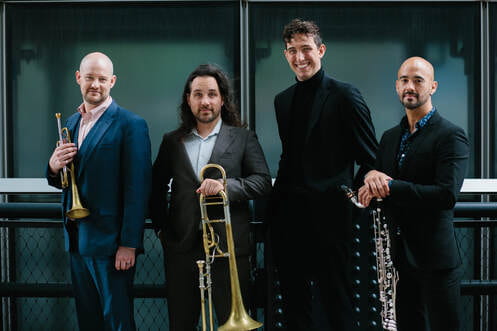
Loadbang (Andy Kozar, trumpet(s); William Lang, trombone; Tyler Bouque, baritone voice; Adrian Sandi, bass clarinet)
New York City-based new music chamber group loadbang is building a new kind of music for mixed ensemble of trumpet, trombone, bass clarinet, and baritone voice. Since their founding in 2008, they have been praised as ‘cultivated’ by The New Yorker, ‘an extra-cool new music group’ and ‘exhilarating’ by the Baltimore Sun, ‘inventive’ by the New York Times and called a ‘formidable new-music force‘ by TimeOutNY. Creating ‘a sonic world unlike any other‘ (The Boston Musical Intelligencer), their unique lung-powered instrumentation has provoked diverse responses from composers, resulting in a repertoire comprising an inclusive picture of composition today. In New York City, they have been recently presented by and performed at Miller Theater, Symphony Space, MATA, and by the Look and Listen Festival; on American tours at Da Camera of Houston, Rothko Chapel, and the Festival of New American Music at Sacramento State University; and internationally at Ostrava Days (Czech Republic), China-ASEAN Music Week (China), the Xinghai Conservatory of Music (China), Shanghai Symphony Hall (China), Visiones Sonoras Festival (Morelia, Mexico), and the Musikverein (Vienna, Austria). loadbang has premiered more than 450 works, written by members of the ensemble, emerging artists, and today’s leading composers. Their repertoire includes works by Pulitzer Prize winners David Lang and Charles Wuorinen; Rome Prize winners Andy Akiho and Paula Matthusen; and Guggenheim Fellows Chaya Czernowin, George Lewis, and Alex Mincek. They are the ensemble in residency at Cornell University through the Steven Stucky Memorial Residency for New Music, and through a partnership with the Longy School of Music of Bard College in Boston, they are on the performance faculty of Divergent Studio, a contemporary music festival for young performers and composers held each summer.
Lisa Mezzacappa, bassist

Lisa Mezzacappa (photo: Tim Rowe)
Bassist, composer and improviser Lisa Mezzacappa has been an active part of California’s vibrant music community for more than 20 years. Her music spans ethereal chamber music, electro-acoustic works, avant-garde jazz, music for groups from duo to large ensemble, and collaborations with film, dance, and visual art. Recent projects include Cosmicomics, a suite for electro-acoustic jazz sextet; Organelle, a chamber work for improvisers grounded in scientific processes on micro and cosmic scales; Glorious Ravage, an evening-length song cycle for large ensemble and films drawn from the writings of Victorian lady adventurers; and Touch Bass, a collaboration with choreographer Risa Jaroslow for three dancers and three bassists. This year she concludes her nine-episode serial audio opera, The Electronic Lover, a collaboration with writer Beth Lisick. In addition to leading her own projects in the US and Europe, Mezzacappa has performed as a sideperson with heroes such as Fred Frith, Marco Eneidi, Rhys Chatham, the Paul Dresher Ensemble, Mark Dresser’s SIM Bass Ensemble, Beth Custer, Alex Cine, Ned Rothenberg, Phillip Greenlief, Vinny Golia and many others. www.lisamezzacappa.com
JASON LEVIS, DRUMS
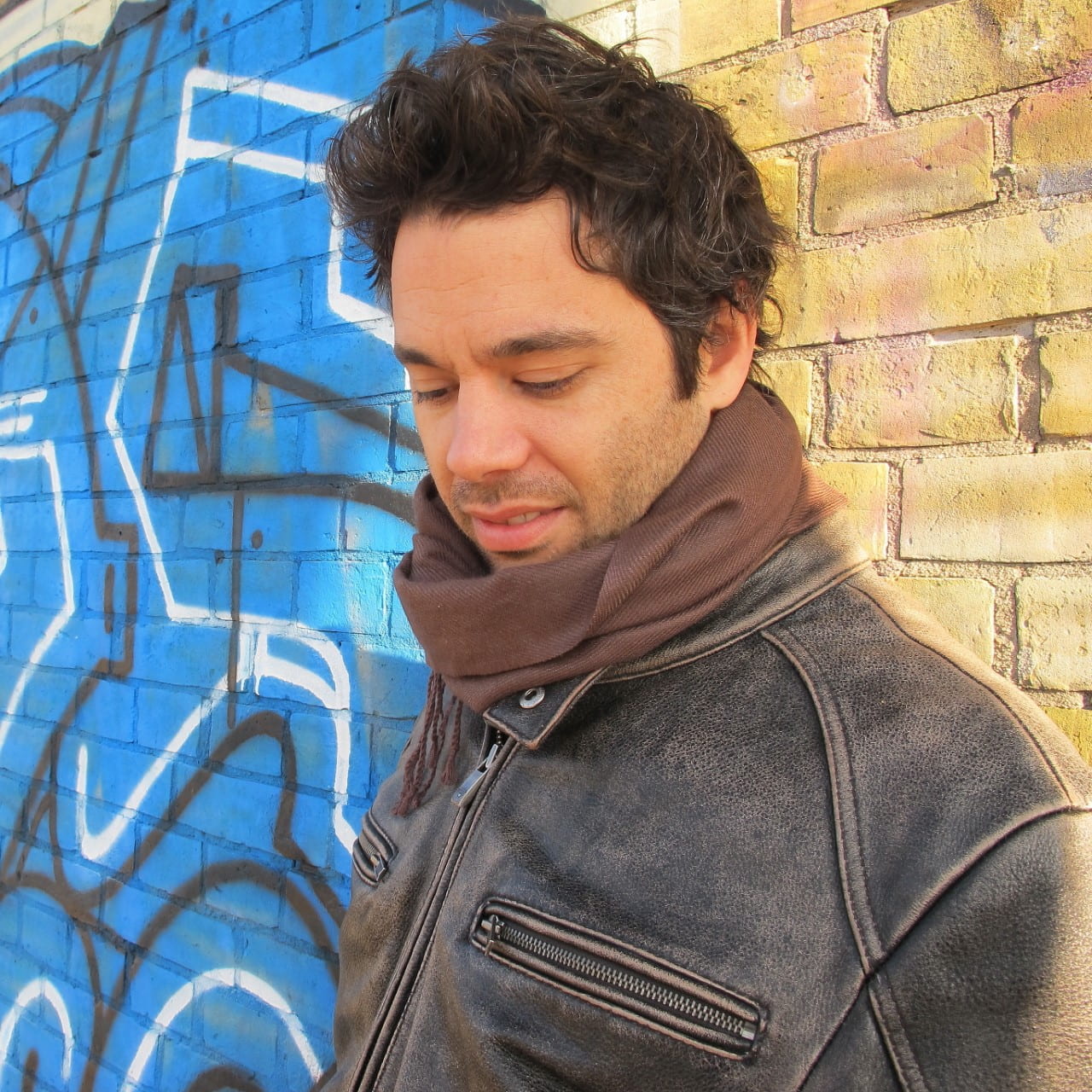
Jason Levis (Photo: Emily Olman)
The music of composer, drummer, and percussionist Jason Levis lives in the rich spaces where styles intersect and musical languages merge. His broad artistic scope to includes jazz, contemporary improvisation, modern classical composition, and dub. His wide-ranging creative efforts are skillfully bound by his innate sense of timbre, sonic space, rhythmic force, and his insatiable interest in discovery. Over the years his passion and curiosity have led him to search out the intersections of musical paths less traveled, and the resulting unique perspective is reflected in his music. Levis has led and been a collaborator in numerous ensembles in the San Francisco Bay Area and Berlin, Germany. These include the chamber/jazz ensembles Jason Levis Trio and Jason Levis Septet; live dub ensemble Joseph’s Bones; the Berlin Boom Orchestra; the duo B. experimental band – a large ensemble for improvisers co-led by Lisa Mezzacappa; Italian cinema inspired group Citta di Vitti, Junior Reggae, and many more. Levis received his Ph.D. in composition from the University of California, Berkeley. He also studied with Richard Barrett and Fabien Lévy in Berlin, and Henry Threadgill during his residency at UC Berkeley. Levis is a Professor at the California Jazz Conservatory.
THE CALLITHUMPIAN CONSORT
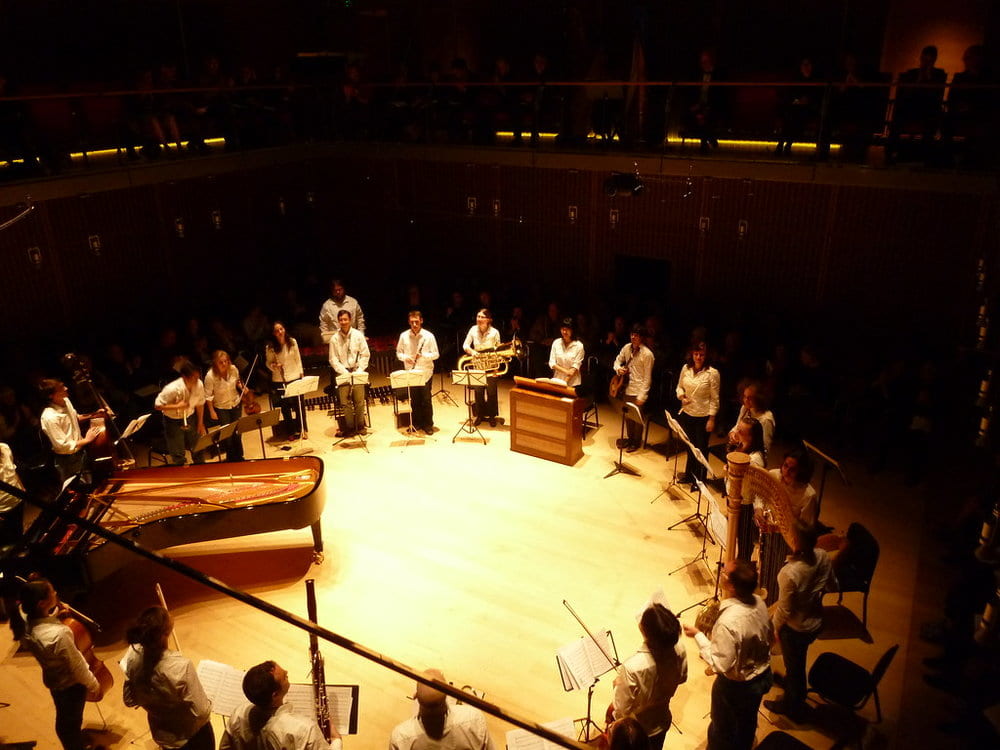
The Callithumpian Consort; Stephen Drury, Director
Founded by pianist and conductor Stephen Drury sometime in the 1980’s, the Consort is a professional ensemble producing concerts of contemporary music at the highest standard. Stephen Drury created the Callithumpian Consort in the belief that new music should be an exciting adventure shared by performers and listeners alike, and that the brand new masterpieces of our day are beautiful, sensuous, challenging, delightful, provocative, and a unique joy. Our audiences bring fresh ears to sounds never heard before; they bring their experiences from rock stadiums, jazz clubs, and internet electronica to the concert hall. They hunger for the new. Callithumpian’s repertoire is the new and unusual, encompassing a huge stylistic spectrum from the classics of the last 100 years to works of the avant-garde and experimental jazz and rock. It is grounded in the musical discoveries of John Cage, Karlheinz Stockhausen, John Zorn, Giacinto Scelsi, Morton Feldman, and Iannis Xenakis. Active commissioning and recording of new works is crucial to our mission. We have worked closely with composers John Cage, Frederic Rzewki, Helmut Lachenmann, Michael Finnissy, Jonathan Harvey, Lee Hyla, John Zorn, John Luther Adams, Franco Donatoni, Lukas Foss, Christian Wolff, Jo Kondo and many others. Recordings are available on Tzadik, Mode, and New World Records.
FEATURED MUSICIANS
In alphabetical order
TYLER BOUQUE, BARITONE VOICE
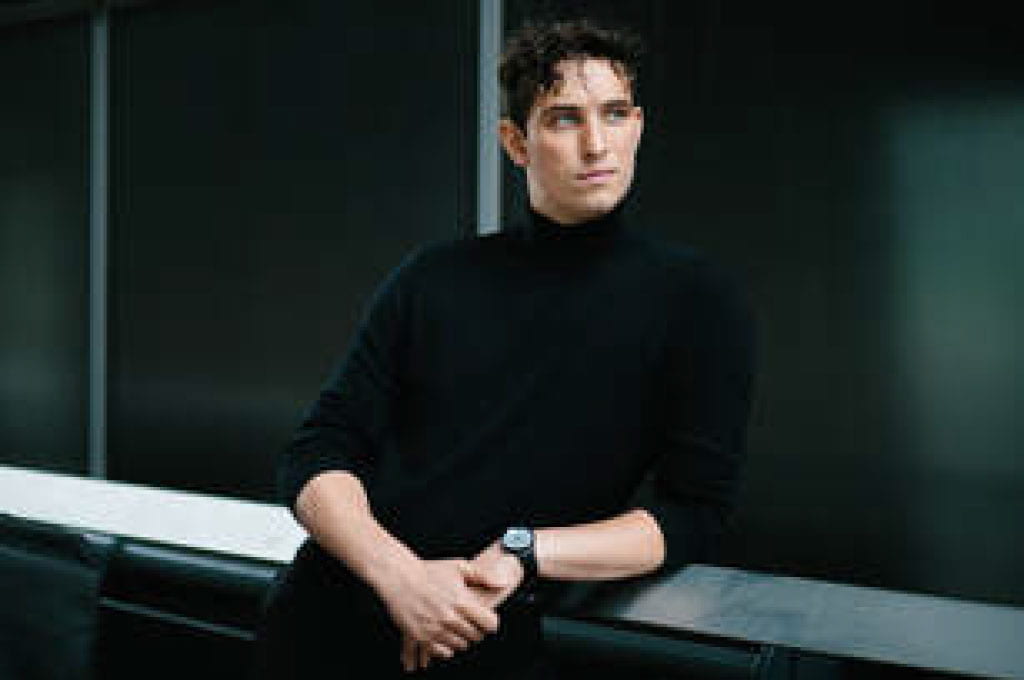
Tyler Bouque
Tyler Bouque (b. 2000) is equal parts musicologist, baritone, and educator specializing in experimental opera and vocal music. Bouque’s musicological interests are intimately tied to his praxis as a performer, focusing on issues of embodiment and vocal phenomenology in post-1980 opera, and the negotiations of time and space between narrative theater and sound-based music. He has given papers for the Gesellschaft für Musiktheorie and the University of Reading’s Samuel Beckett Symposium, and completed archival research on the Sciarrino manuscripts at the Paul Sacher Stiftung. He has lectured on voice and performance for New England Conservatory and the Sydney Conservatorium, and writes liner notes for Huddersfield Contemporary Records. In addition, he is completing his first book, an act of subjective cartography revolving around the single question that informs all of his work: how can we understand opera as a genre in the twenty-first century?
STEPHEN DRURY, ARTISTIC DIRECTOR, CALLITHUMPIAN CONSORT
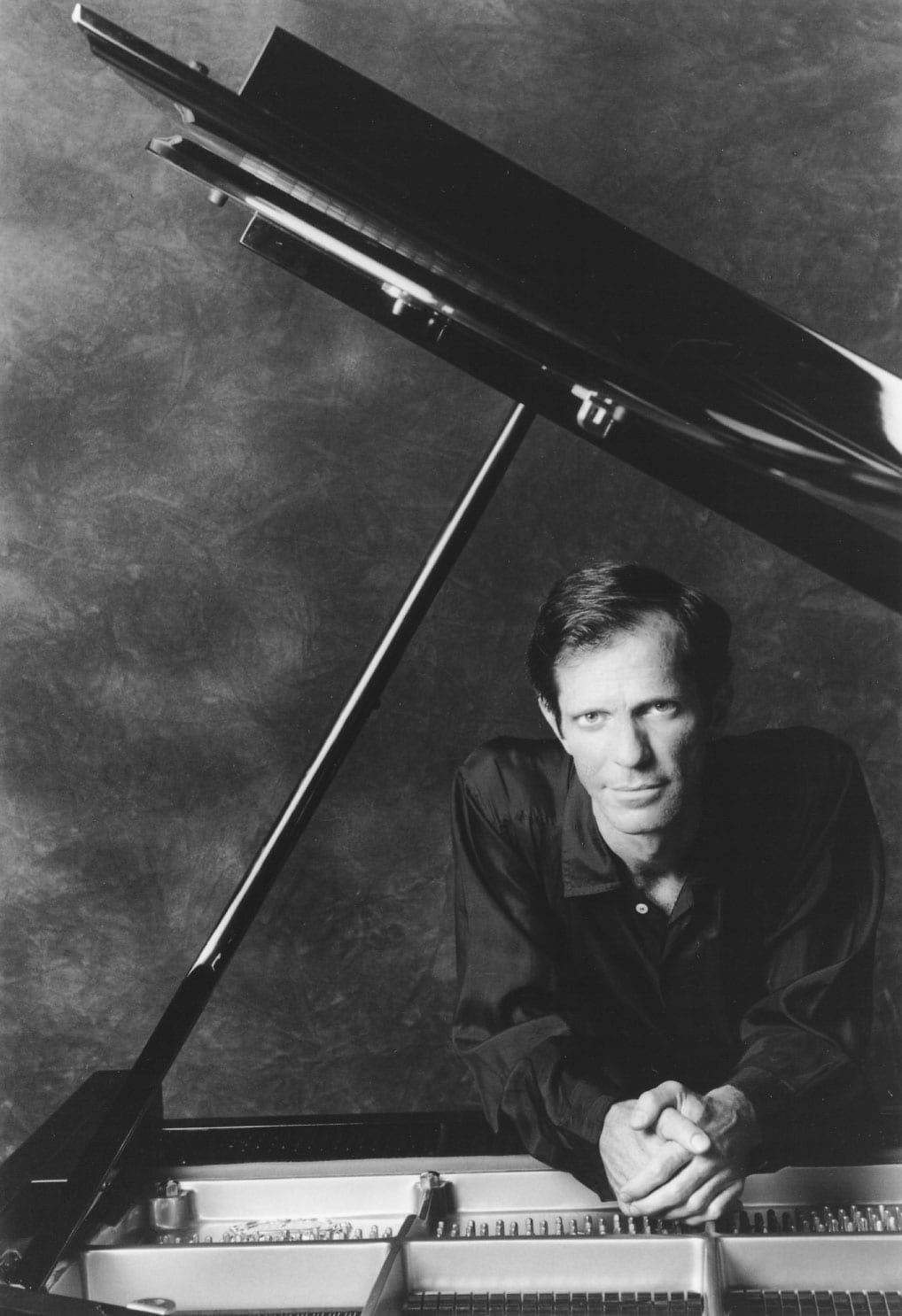
Stephen Drury (Photo: Lisa Kohler)
Well-known as a champion of twentieth-century music, Stephen Drury’s repertoire extends from Bach, Schubert, and Liszt to the complete piano sonatas of Charles Ives and music by John Cage, Elliott Carter, Frederic Rzewski, John Zorn, Morton Feldman, Gyorgy Ligeti, and Luciano Berio. He has performed throughout the United States, Latin America, Europe and Asia, taking the sound of dissonance into remote corners of Pakistan, Greenland and Montana. He was a prize-winner in the Carnegie Hall/Rockefeller Foundation Competitions in American Music, and the United States Information Agency selected him twice for its Artistic Ambassador program. Recipient of grants from the National Endowment for the Arts and Meet the Composer, Drury has commissioned new works from John Zorn, John Cage, Terry Riley, Lee Hyla and Chinary Ung. Stephen Drury teaches at the New England Conservatory of Music. He has recorded for Mode, Tzadik, Avant, New Albion, Catalyst, MusicMasters and Neuma.
ISAAC DUBOW, TRUMPET
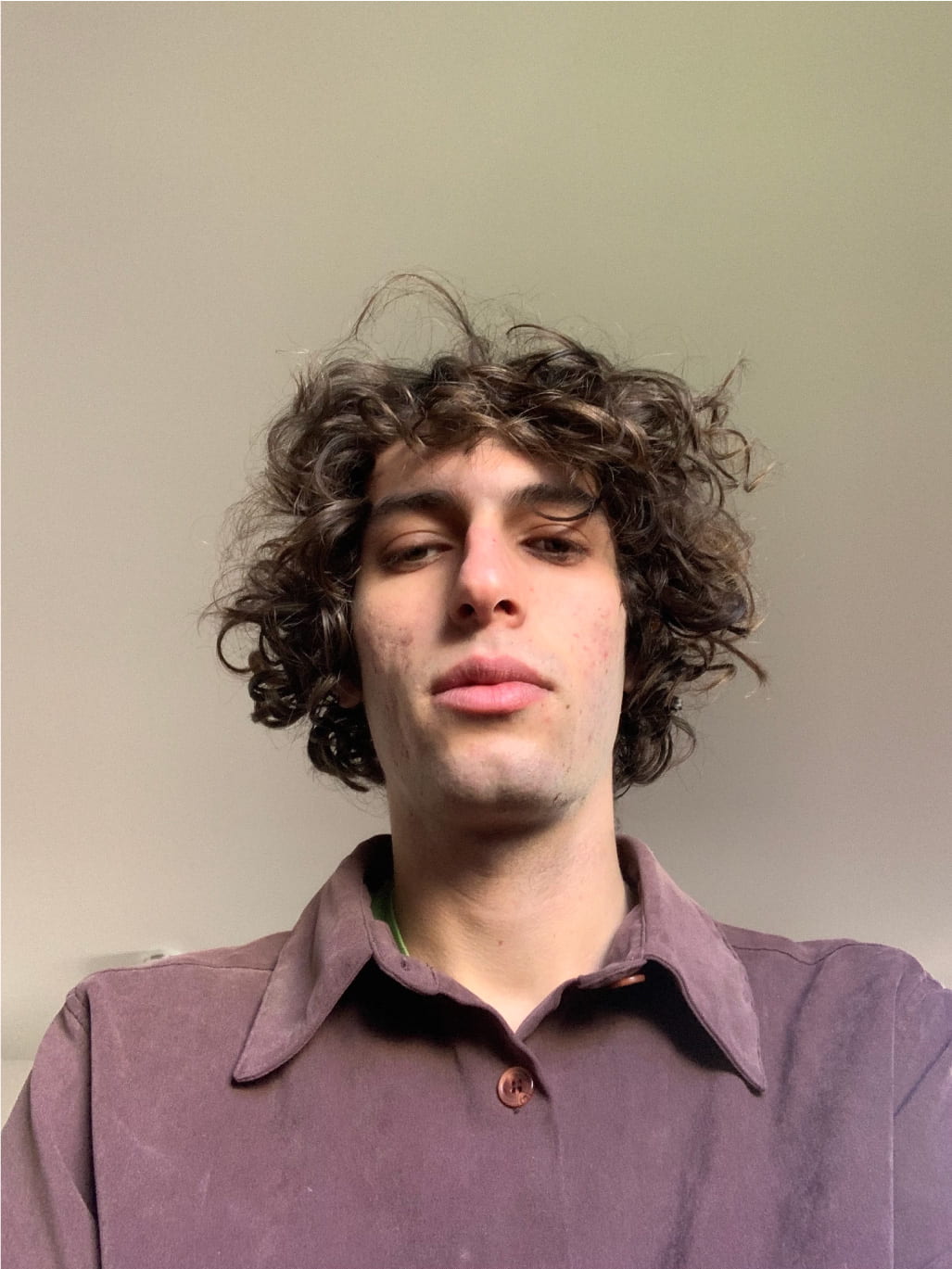
Isaac Dubow
Isaac Dubow is a trumpet player and composer from Brooklyn, New York. Since starting classical violin at age 4 he has played in a wide range of musical scenarios, and is currently performing around the northeast region with other young improvisers. Isaac has studied with some of the most prominent trumpet players in the world including but not limited to Adam O’farrill, Jason Palmer, and John Mcneil. While in his third year at the New England Conservatory, he is now studying composition with Davide Ianni.
BENJAMIN EIDSON, ALTO SAXOPHONE
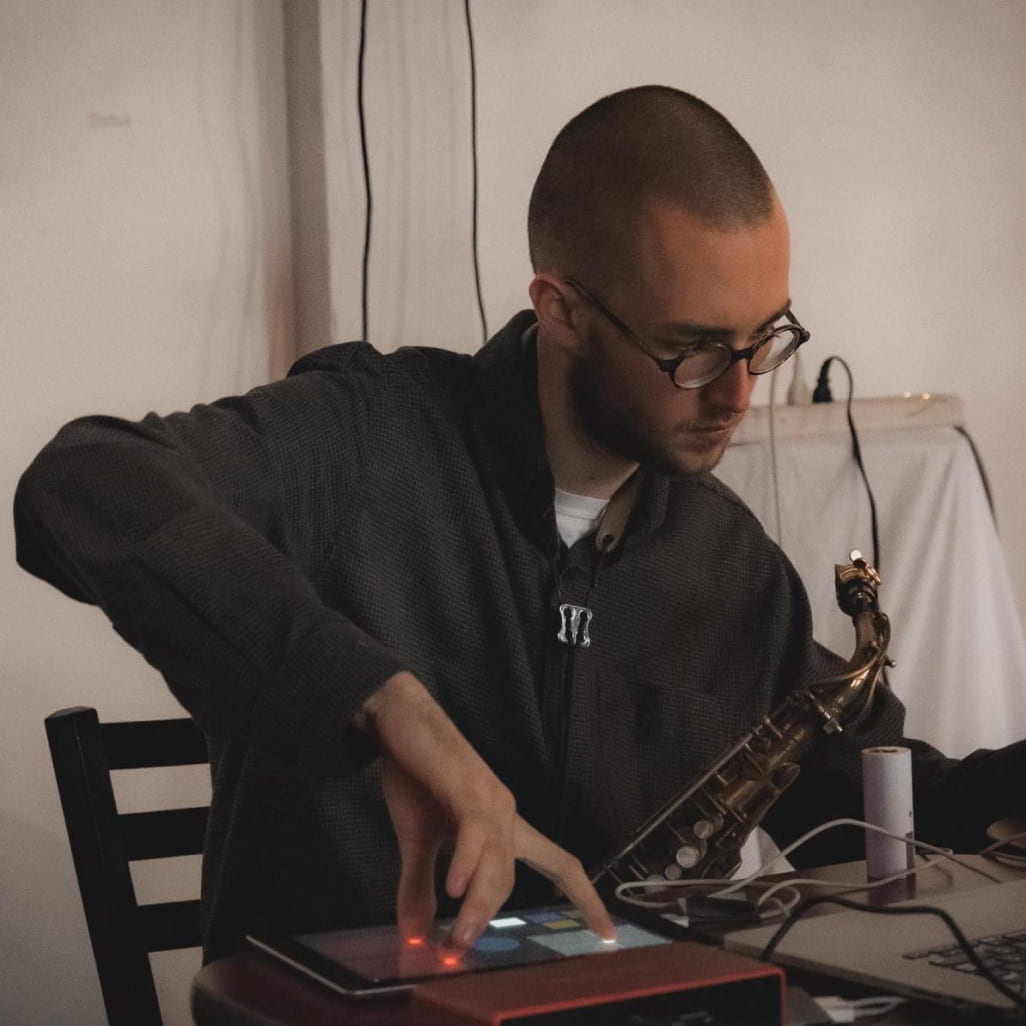
Benjamin Eidson
Ben Eidson (b. 1999) is a saxophonist and computer musician from Columbia, South Carolina currently finishing an undergraduate degree in Jazz Studies at the New England Conservatory of Music. He regularly plays throughout the Northeast United States on both saxophone and laptop in various improvised contexts. His main teachers at NEC have been Efstratios Minakakis, John Mallia, and Joe Morris.
ANDY KOZAR, TRUMPET(S)
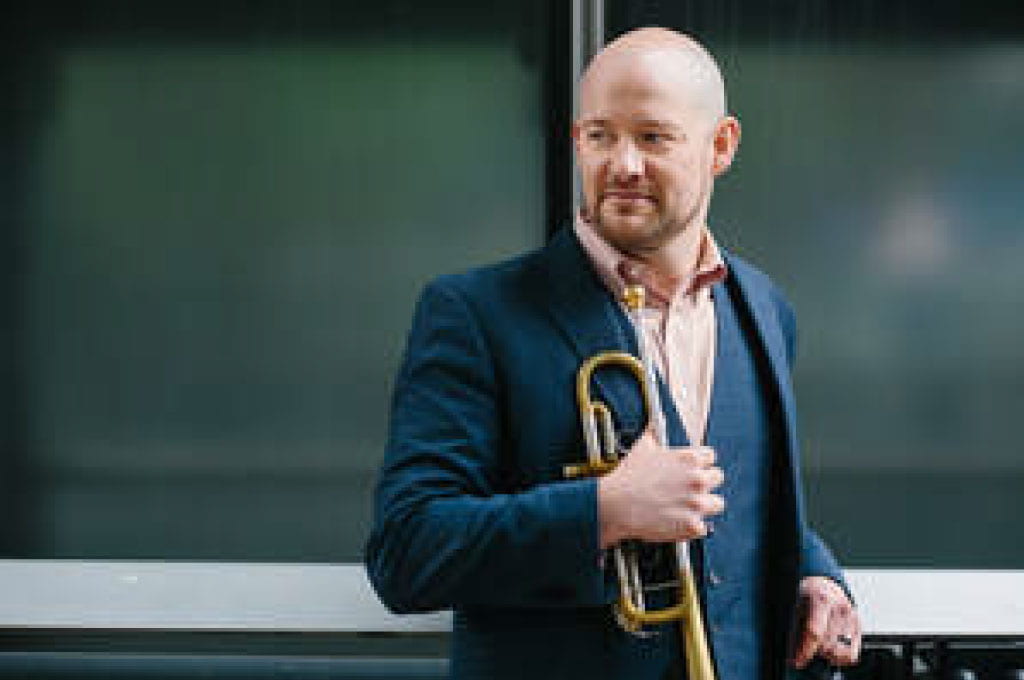
Andy Kozar
A native of Pittsburgh, Andy Kozar is a New York City based trumpeter, improviser, composer and educator that has been called a ‘star soloist’ by TimeOutNY, noted for his ‘precise trumpeting’ by New York Classical Review and has been said to be ‘agile as he navigated leaps and slurs with grace…he shifted between lyricism and aggression deftly’ by the International Trumpet Guild Journal. A strong advocate of contemporary music, he is a founding member of the contemporary music quartet loadbang which has been called ‘inventive’ by the New York Times, ‘cultivated’ by The New Yorker, and ‘a formidable new-music force’ by TimeOutNY. With loadbang, his playing has been said to be ‘polished and dynamic, with very impressive playing’ by the Baltimore Sun, and that he ‘coaxed the ethereal and the gritty from [his] muted instrument…and revealed a facility for shaping notes and color’ by the San Francisco Classical Voice.
WILLIAM LANG, TROMBONE
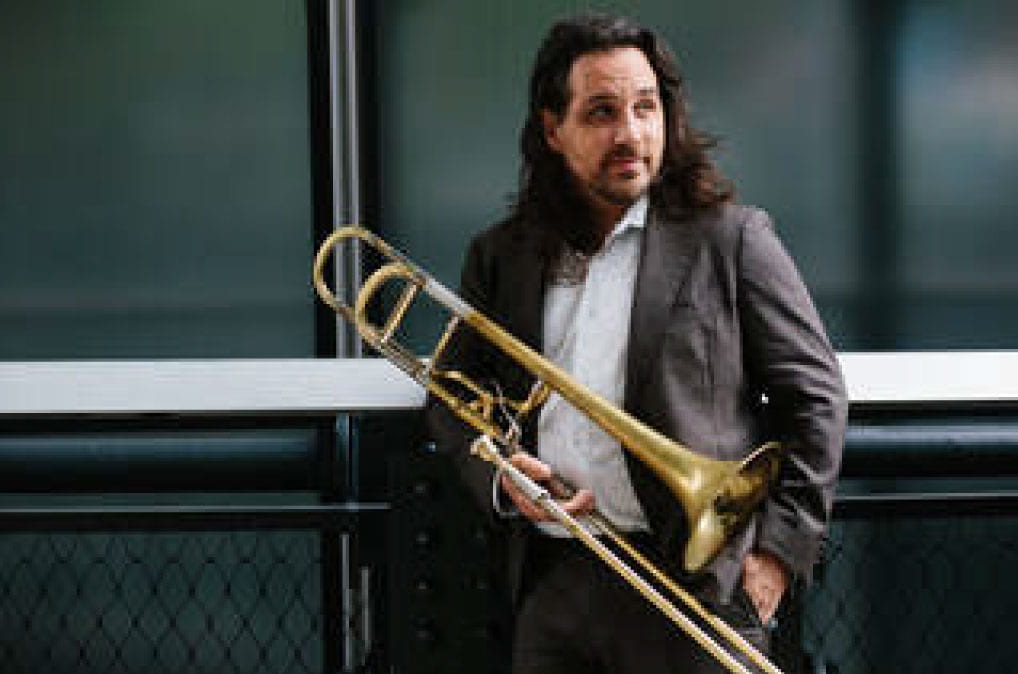
William Lang
Originally from Long Island, Trombonist William Lang is an active performer and improviser in New York and Boston. Hailed for his “superb performance” of James Bergin’s Langmusik by the Boston Globe, William is dedicated to playing premieres and new music. He has performed solo recitals at New York City’s premiere floating concert venue: Bargemusic, the Dimenna Center, the Stone, the Tank, the Gershwin Hotel, and Greenfield Hall, as well as other venues throughout the country. He has also appeared as a soloist with the Janacek Philharmonia in an acclaimed performance of Iannis Xenakis’ trombone concerto: Trookh, as well as with the Fredonia Wind Ensemble on a tour of New York State; and as a guest soloist with Ensemble Pi and the Broadway Bach Ensemble, as well as on the Avant Media Festival, the Defacto Music Series, and the Electronic Music Festival.
EMILIANO LOPEZ, GUITAR
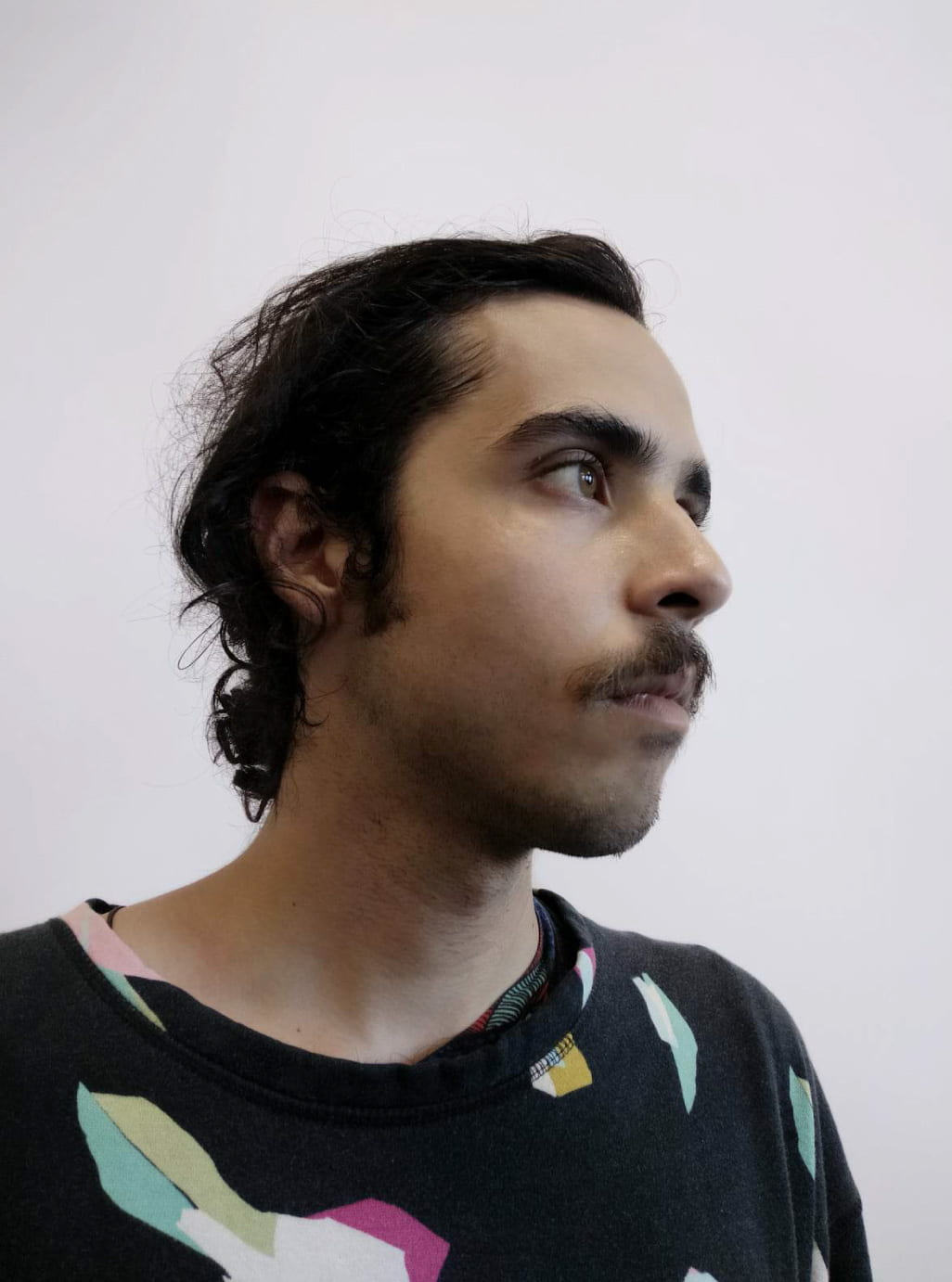
Emiliano López (Mexico City, 1994) is a guitarist and noise musician originally from Mexico and Boston based. He studies Contemporary Musical Arts at New England Conservatory in Boston, where he specializes in electric guitar, electronic music and music production. Emiliano has studied privately with guitarists Joe Morris, Lautaro Mantilla, Eliot Fisk. Among his most significant projects are “Cantan el Bosque Descalzo” winner of the Ecos Sonoros 2021 award, “Máquina de Luz” (2022) presented at the New England Conservatory and the collaborative installation “Flores Compuestas” 2022 presented at the cultural center Árbol que Nace Torcido.
STEPHEN MAROTTO, CELLO
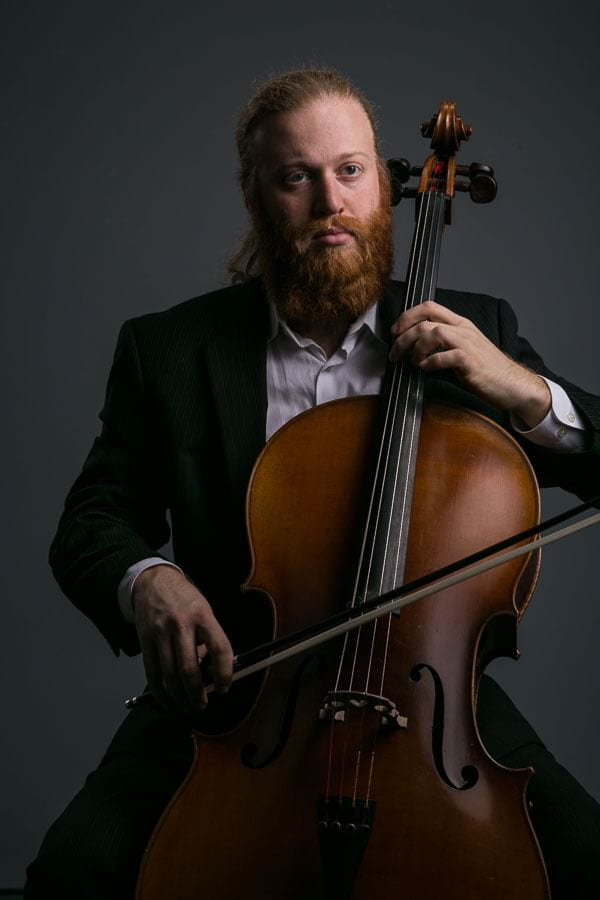
Stephen Marotto
A native of Norwalk, Connecticut, Stephen has received a Bachelors degree with honors from the University of Connecticut, and Masters and Doctor of Musical Arts degrees from Boston University. Stephen’s formative teachers include Michael Reynolds, Kangho Lee, Marc Johnson, and Rhonda Rider. A passionate advocate for contemporary music, Stephen plays regularly with chamber groups throughout New England and also performs on various new music concert series in the Boston area and beyond. Stephen has attended music festivals at the Banff Centre, Cortona Sessions for New Music and SoundSCAPE festivals in Italy, and the and the Summer Course for New Music in Darmstadt, Germany. Stephen has a wide range of musical interest that include contemporary chamber music, improvisatory music, electroacoustic music, as well as bluegrass and folk. As a soloist, Stephen has commissioned several new works for the instrument, and is concerned with expanding and augmenting the tonal pallet of his instrument both with and without technology. In his spare time, Stephen is an avid hiker and outdoorsman.
ADRIAN SANDI, BASS CLARINET
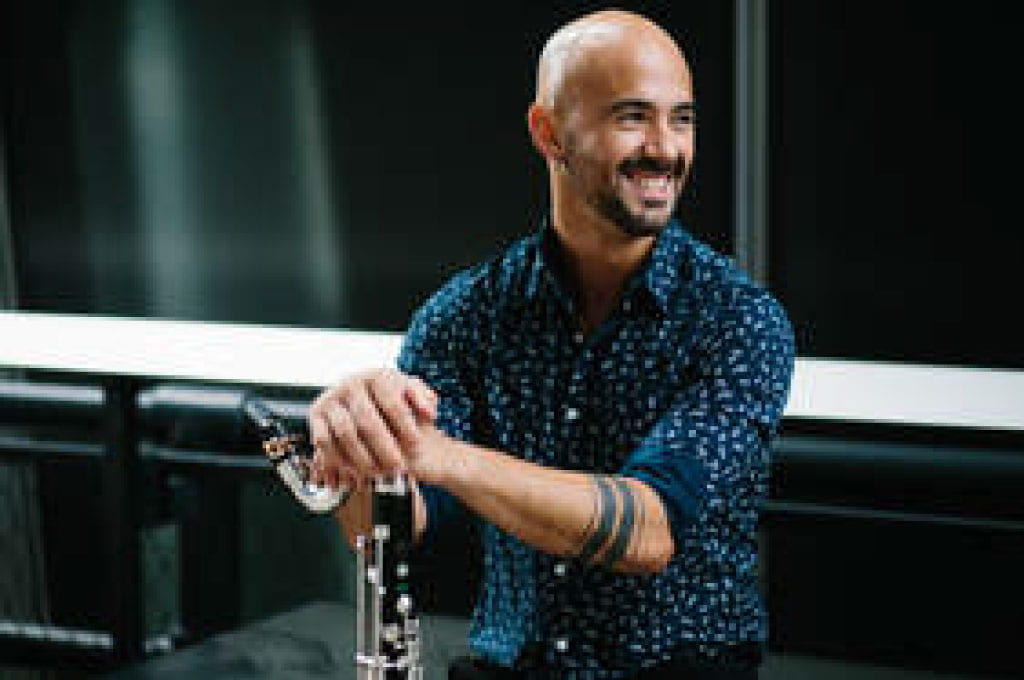
Adrian Sandi
Born and raised in San José, Costa Rica, Adrián began his clarinet studies in 1997 at the National Institute of Music of Costa Rica. He obtained his BM magna cum laude from Virginia Commonwealth University, his MM with distinction from DePaul University, and his Doctorate in Musical Arts from the Eastman School of Music. His main professors have included Ken Grant, Jon Manasse, Larry Combs, Julie DeRoche, Dr. Charles West, and Jose Manuel Ugalde. Adrián Sandí is currently a freelancer based in San José, Costa Rica. Hailed by the New York Times as “a brilliantly cool yet tender soloist”, he is an active solo recitalist and has given chamber music and solo performances throughout his musical career in different cities in Costa Rica, Panama, USA, Canada, China, Mexico, Germany, Belgium and Guatemala.
YUKIKO TAKAGI, PIANO

Yukiko Takagi
Yukiko Takagi received Bachelor’s and Master’s degrees from the New England Conservatory where she studied with Veronica Jochum and Stephen Drury. While a student at the Conservatory she was selected to perform in several Honors programs and appeared regularly with the NEC Contemporary Ensemble. Ms. Takagi has performed with the orchestra of the Bologna Teatro Musicale, the John Zorn Ensemble, the Auros Group for New Music, Santa Cruz New Music Works, the Harvard Group for New Music and the Chameleon Arts Ensemble. She performs regularly with the Eliza Miller Dance Company and the Ruth Birnberg Dance Company and gives frequent duo-piano concerts with Stephen Drury. Ms. Takagi is a featured performer with the Callithumpian Consort. Her recording of Colin McPhee’s Balinese Cerimonial Dances was released by MusicMasters. At New England Conservatory Yukiko Takagi has appeared on the First Monday series at Jordan Hall, and is a teacher and guest artist for the Summer Institute for Contemporary Piano Performance.
MIKE WILLIAMS, PERCUSSION
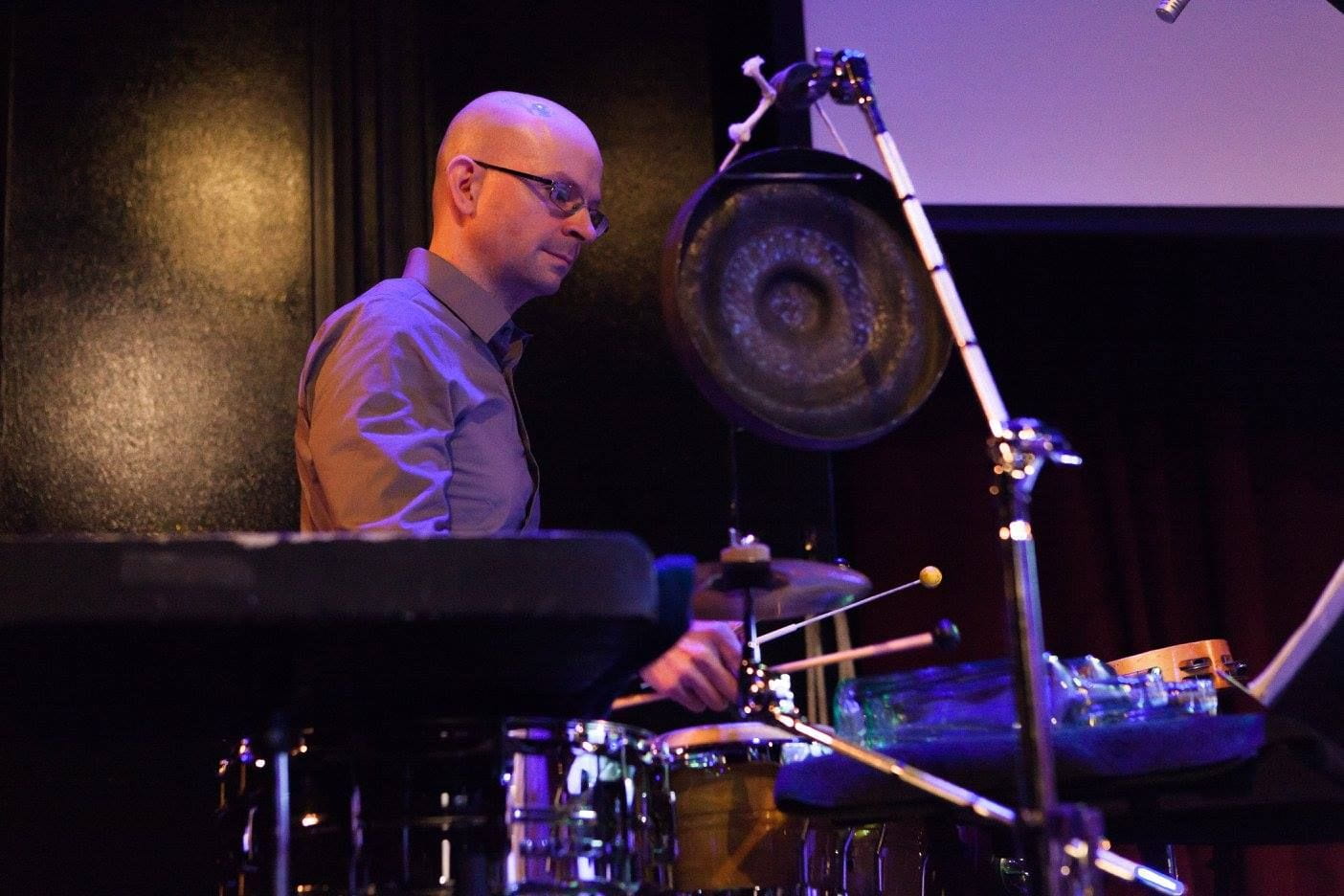
Mike Williams
Hailed by The Boston Globe as “one of the city’s best percussionists,” Mike Williams has performed throughout North America and Europe and is an active performer in Boston. An advocate for contemporary music, he is a founding artist and the ensemble director of Guerilla Opera, having served as artistic director for eleven seasons. Williams has worked with many of the leading composers of our time including Pierluigi Billone, Michael Finnissy, Philippe Leroux, Salvatore Sciarrino, Gunther Schuller, and Roger Reynolds among many others. He was a fellow of the Tanglewood Music Center and has performed at festivals including the Festival de Mexico, Gaudeamus Music Week, the Internacional Cervantino Festival, Monadnock Music, the Gaida Festival in Vilnius, Lithuania, and SICPP at New England Conservatory. Williams studied at Boston Conservatory, winning top prize in the concerto competition, and the Amsterdam Conservatory during which time he regularly performed with the Netherlands Radio Chamber Orchestra under Peter Eötvös. Williams serves on the faculty of the Boston Conservatory at Berklee.
Registration for TENOR BOSTON 2023 is now OPEN
Full Registration (before April 15, 2023) is: $150. Students and independent artists: $50. Remote participation: $100. Full registration includes morning and afternoon coffee, tea, snacks; lunch will also be provided; and offers access to all papers, demos, workshops, and concerts.
Contact Us
Northeastern University
Music Department
Rm. 354 Ryder Hall
11 Leon St.
Boston, MA 02115
Longy School of Music of Bard College
27 Garden Street
Cambridge, MA 02138
New England Conservatory of Music
290 Huntington Ave.
Boston, MA 02115
